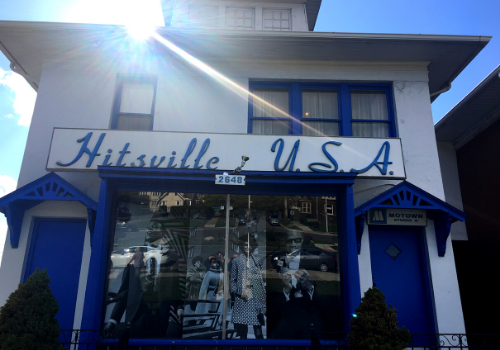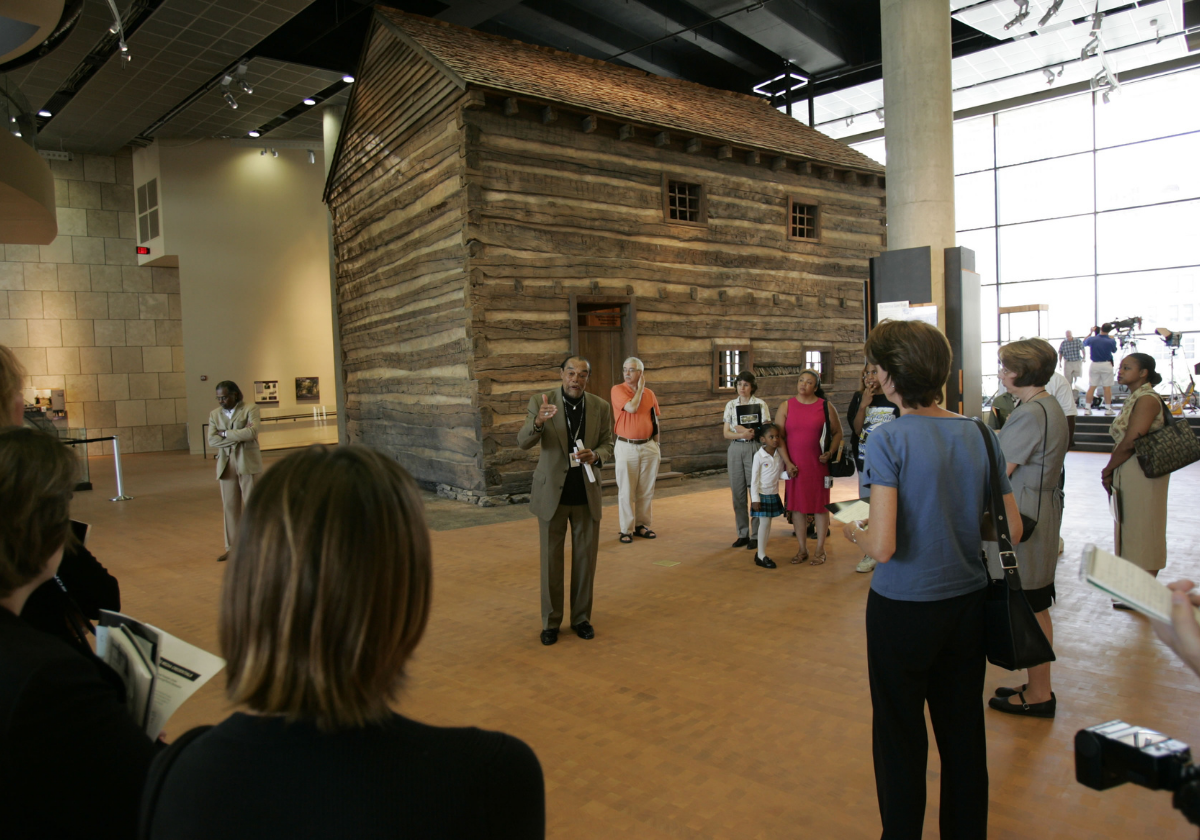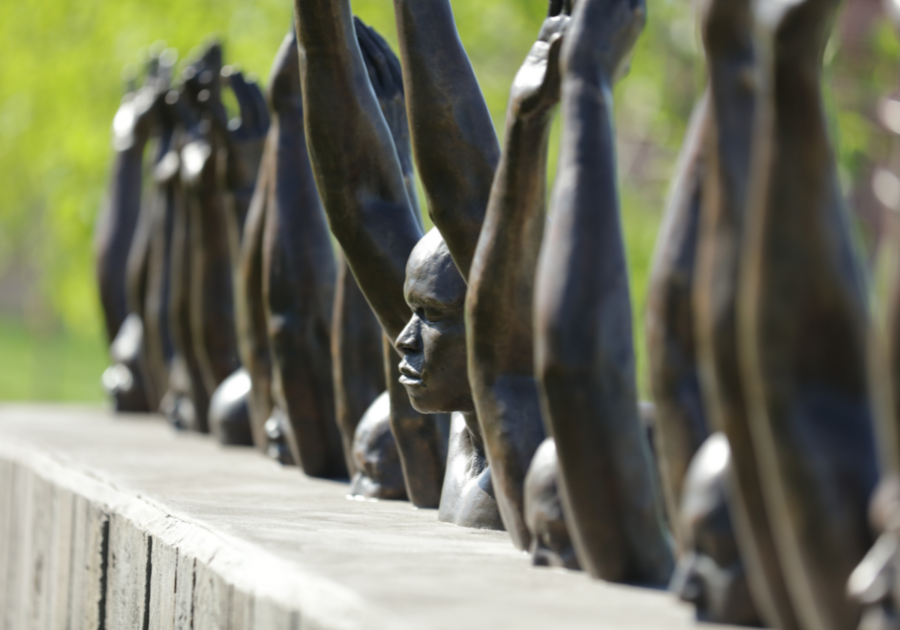One way to honor the meaning of Black History Month with your family is to visit historic sites, memorials, and museums throughout the country that inspire, celebrate, and educate about African-American culture and history. Visiting these places is also a great way to engage your children in conversations about the importance of this special month. Encourage them to think critically and ask questions about the civil rights movement, segregation, and the strength of people from all backgrounds who have been instrumental in creating a more just society today.
Here are 10 significant sites in the United States your family can visit or learn more about during Black History Month in February — or any time of year.
National Museum of African American History & Culture
Washington D.C.
The National Museum of African American History & Culture was established by an Act of Congress in 2003, following decades of efforts to promote and highlight the contributions of African Americans. To date, the Museum has collected more than 40,000 artifacts and nearly 100,000 individuals have become members. The Museum opened to the public in 2016 as the 19th museum of the Smithsonian Institution. While in D.C, don't miss the African American Civil War Memorial and the Martin Luther King Jr. Memorial.
Motown Museum
Detroit, Mich.
There are many sights to see in Detroit when it comes to black history, but one can't-miss is Hitsville U.S.A., home to the Motown Museum. Visitors feel like they've stepped back in time inside and get a chance to stand in Studio A where some of the nation's greatest artists once recorded. The museum just recently reopened post-pandemic. Also, while in the area, make time for the Charles H. Wright Museum of African American History, home to more than 35,000 artifacts.
 Kara Murphy | Macaroni KID |
Black Heritage Trail
Boston, Mass.
The Black Heritage Trail is a 1.5-mile-long trail with 10 stops in Boston linking sites that explore the trials of the free black community which inhabited the North Slope of Beacon Hill from the late 18th century through the 19th century. Visitors can start at the Robert Gould Shaw/Massachusetts 54th Regiment Memorial or at the African Meeting House at the Museum of African American History.
MLK Jr. World Peace Rose Garden
Atlanta, Ga.
The Martin Luther King Jr. World Peace Rose Garden borders the Peace Plaza, in front of the Visitor Center. It has 185 roses in a variety of colors and fragrances. It was established in 1992 as part of a worldwide effort to help youth recognize the importance and value of peace. The graves of Dr. and Mrs. King can be seen directly across the street if you stand at the Peace Plaza, facing the rose garden.
National Memorial for Peace and Justice
Montgomery, Ala.
This memorial, which opened in 2018, gives a sobering, immersive look at the history of racial terror in the United States. The National Memorial for Peace and Justice features an emotionally powerful installation of more than 800 steel pieces, each representing a county in the U.S. where a racial lynching took place. Just a short distance away is the Legacy Museum, located on a site where enslaved people were once traded.
Greenwood Rising
Tulsa, Okla.
Visitors here explore the history of Tulsa’s Historic Greenwood District, including Black Wall Street where the 1921 Tulsa Race Massacre occurred. Exhibits immerse visitors in the minute-by-minute accounts from survivors and memories from descendants and include many first-person accounts from survivors. You can also find guided tours of the historic area, led by a grandson of survivors.
Tuskegee Airmen National Historic Site
Tuskegee, Ala.
The Tuskegee Airmen were heroes of World War II and the first African-American military aviators in the United States Armed Forces. At the time, they were subject to Jim Crow laws, and the military was racially segregated. Their story reflects the struggle of African Americans to achieve equal rights. Watch this film, which is shown at the Tuskegee Airmen National Historic Site, that recounts the Tuskegee Airmen's story:
Northwest African American Museum
Seattle, Wash.
The Northwest African American Museum just reopened on Martin Luther King Jr. Day, after being closed for three years due to the pandemic. Current exhibitions include the beautiful and thought-provoking "Freedom of Expression," showcasing the strength and range of visual artistic expression produced by artists of African descent residing in the Pacific Northwest, challenging any misconception of what “Black” art is or is not.
Negro Leagues Baseball Museum
Kansas City, Mo.
In the early 1900s, black Americans weren’t allowed to play on Major League Baseball teams. But that didn’t stop athletes from playing and forming their own teams. Today, the Negro Leagues Baseball Museum in Kansas City, Missouri, preserves the fascinating history of black baseball players from the late 1800s to the 1960s. Visit their website for a virtual tour, and watch legend Buck O'Neil talk about his greatest day in baseball:
National Underground Railroad Freedom Center
Cincinnati, Ohio
The National Underground Railroad Freedom Center tells the heroic stories of people central to the Underground Railroad. But it also takes visitors through contemporary times by delving into continuing modern-day issues such as human trafficking.
 Photo courtesy of National Underground Railroad Freedom Center/Mark Bealer Photography Photo courtesy of National Underground Railroad Freedom Center/Mark Bealer Photography |
Black history is American history. By learning about the history of Black Americans, we can create a more united country that respects the contributions of all its citizens. These ten locations are great places to start your journey into understanding and honoring black history. Have you visited any of them? What other sites would you add to this list?



